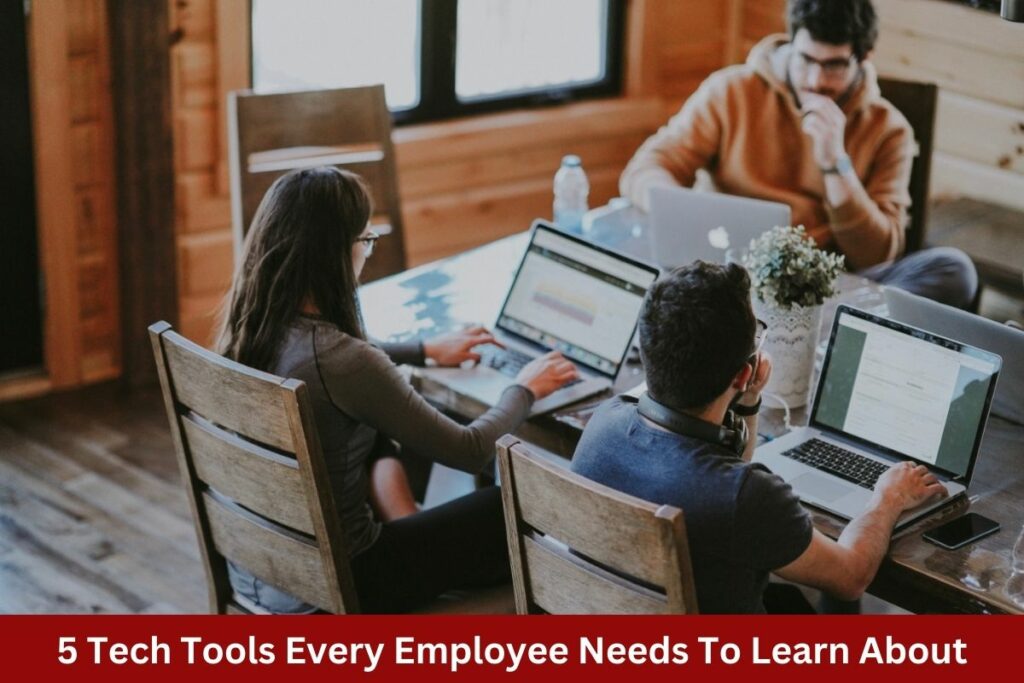The world of work is constantly evolving. Organizations have been ramping up their technology adoption in the past few years to make workplace operations more flexible and productive. A Harvard Business Review article about workplace technology puts an emphasis on finding the right tools to foster communication, collaboration, and connection among employees. When employees have the appropriate technology that supports their work, they become 230% more engaged and are 85% more likely to stay in their jobs. In light of this, here are the five tech tools every employee needs to learn to improve the individual and collective work experience.
1. Slack for communication
When it comes to remote or hybrid working arrangements, a workplace messenger can make projects less of a waiting game and more of a real-time, hands-on opportunity to connect. Slack elevates office communication by allowing you to create a general group for company-wide announcements, alongside channels designed for conversations within and between departments. These features break down the communication silos that serve as roadblocks to collaboration and enable the sharing of essential information across all levels and positions. Finally, the customization of Slack’s chat rooms paves the way for both personal and professional connections.
2. Canva for graphic design
Regardless of the field you work in, ideas and processes must be translated and showcased visually. As a user-friendly graphic design tool, Canva enables you to create visual content ranging from mind maps and data visualizations to presentations and social media posts. Recently, Canva announced its worksuite plans so you can easily convert a written document into a more engaging deck or website. On top of its interoperability, Canva streamlines workflows by sharing edit or view-only access with other team members and integrating brand fonts, colors, and logos into a simple toolkit.
3. Google Alerts for business intelligence
In the competitive landscape of business, you want to be aware of the direction your company is taking and what you can do to further accelerate its growth. Google Alerts is a helpful tool not only for job seekers and candidates but more importantly for employees conducting market and industry research. Brand recognition and reputation can effectively be monitored through real-time notifications from Google Alerts whenever your company or its products/services gets mentioned in keywords, reviews, or websites. These insights go beyond company-specific knowledge too, as alerts can be set up for relevant news and trends about your competitors and the wider industry. All of these contribute to a more evidence-based business strategy.
4. Dropbox for file sharing and storage
More and more companies are moving from paper-based knowledge management to cloud storage and backup. Dropbox makes team collaboration seamless and secure by integrating file uploading, sharing, editing, and storage into a cloud-based system. These documents and folders can then be synced across multiple devices so your employees can access what they need anytime and anywhere. A remarkable transparency feature of Dropbox is its activity log, which serves as the digital ledger for when a file or folder was created, viewed, edited, moved, renamed, or deleted. Through its range of pricing plans, Dropbox also gives you flexibility in choosing the features you want and need in terms of storage space, encryption, and admin control.
5. Notion for project management
Goal-setting and task delegation become all the more efficient when you use a project management tool. Notion organizes content into different databases beyond spreadsheets or documents; it has customizable and collaborative templates for lists, galleries, tables, and timelines. Its Kanban board tool in particular helps bring clarity to your workflows and project progress as it categorizes tasks and deliverables based on status (to-do, in progress, and completed). Notion stands out as an all-in-one workspace when you integrate it with other tech tools like Slack and Dropbox.
